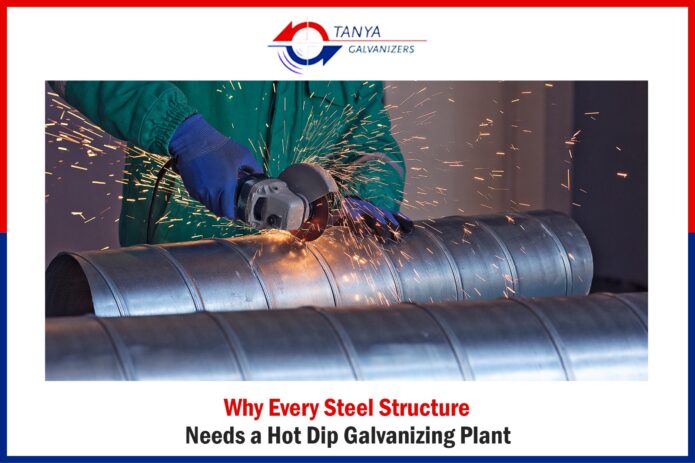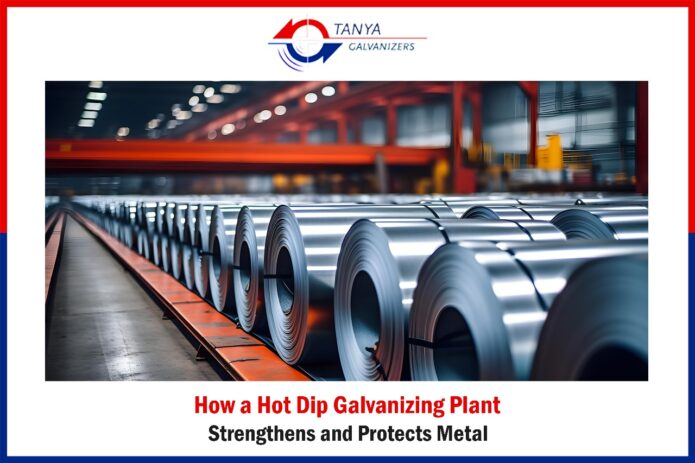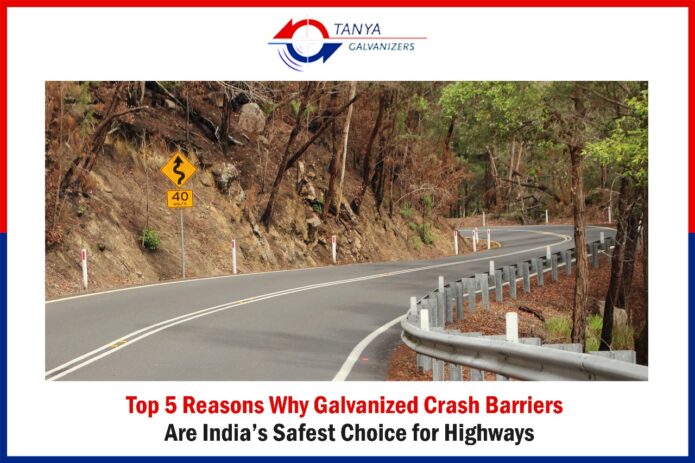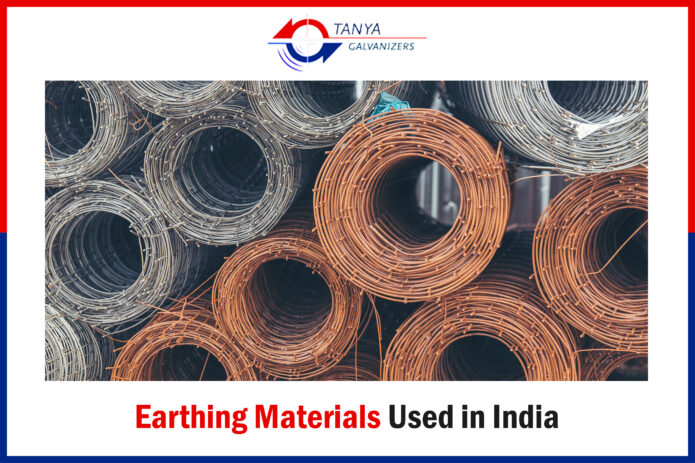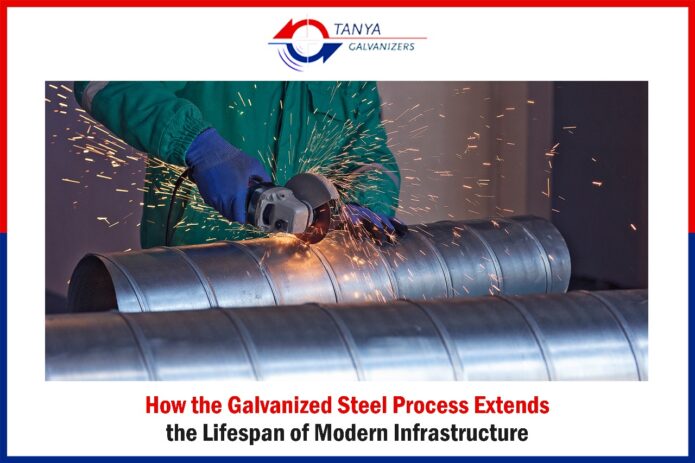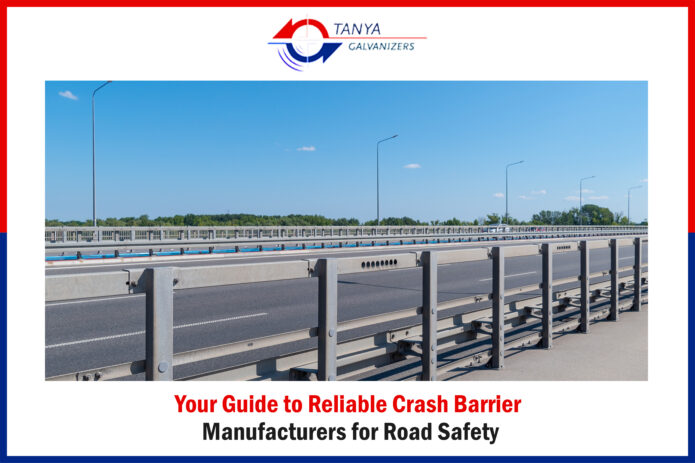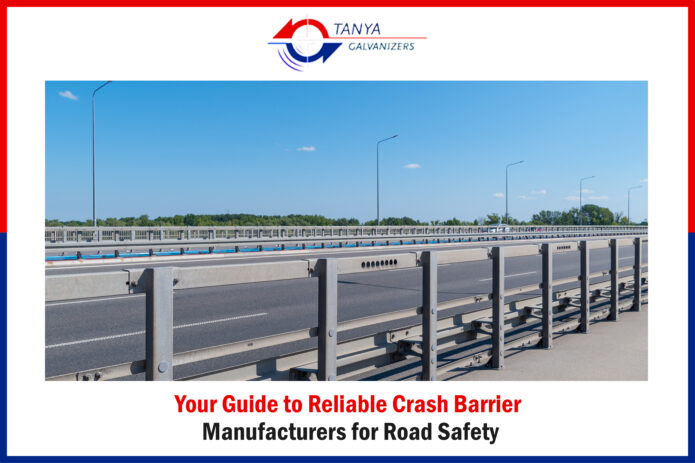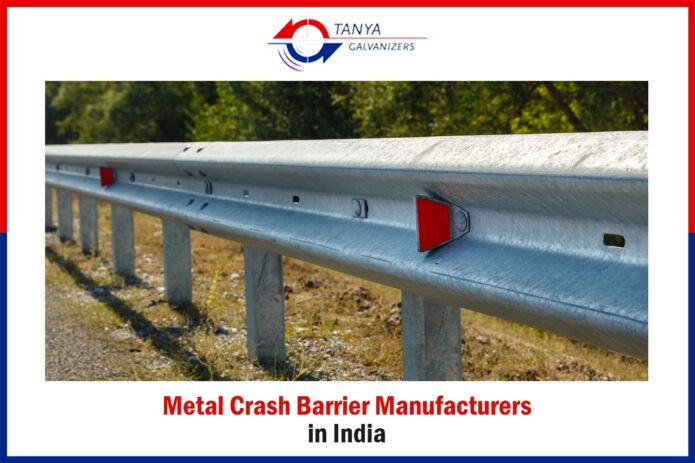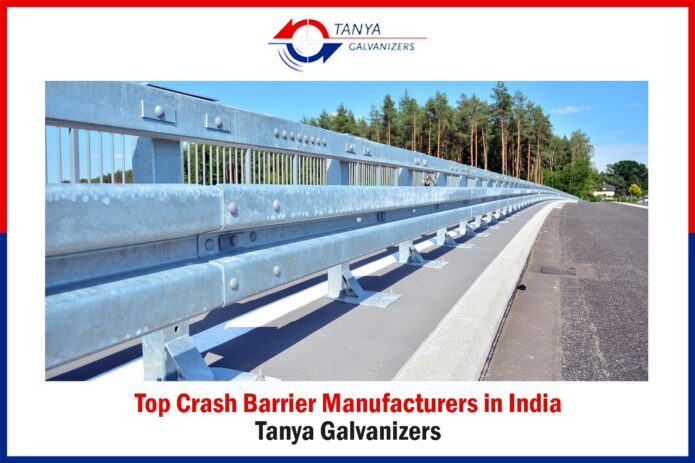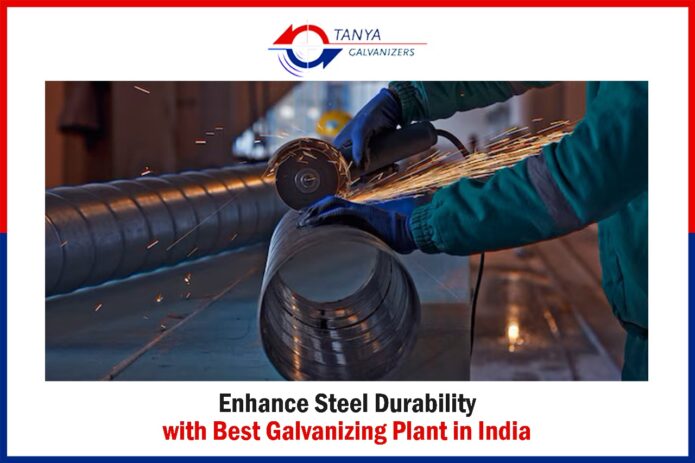Steel is the backbone of modern civilization. From the towering skyscrapers that define our skylines to the intricate bridges connecting nations and the robust frameworks of industrial machinery, steel provides the strength and versatility required for progress. However, steel has a natural enemy: corrosion. In the absence of a professional-grade shield, steel’s structural integrity is constantly under siege from moisture, salt, and industrial pollutants.
This is where the role of a state-of-the-art hot dip galvanizing plant becomes indispensable. For engineers, architects, and project managers, ensuring the longevity of steel structures is not just a logistical necessity; it is a matter of safety, economy, and reputation.
The Science of Longevity: Understanding the Galvanizing Process
The galvanizing process is a sophisticated metallurgical procedure that goes far beyond simple painting or coating. It involves immersing fabricated steel into a bath of molten zinc at temperatures typically around 450°C (840°F). While the process may seem straightforward, the chemical reaction that occurs is profound.
During immersion, the zinc reacts with the iron in the steel to form a series of zinc-iron alloy layers. These layers are topped with a final coating of pure zinc. Unlike paint, which merely sits on the surface and can easily peel or flake, galvanizing creates a metallurgical bond. The coating becomes an integral part of the steel itself. This “sacrificial” protection means that even if the coating is damaged, the surrounding zinc will corrode first, protecting the underlying steel from rust.
Why Hot Dip Galvanizing is the Ultimate Industrial Shield
In the search for industrial galvanizing solutions, decision-makers often weigh various options like powder coating or electroplating. However, hot dip galvanizing remains the gold standard for several authoritative reasons:
- Complete Coverage: Unlike manual spray-on coatings, the molten zinc bath ensures that every nook, cranny, and internal hollow of a structure is coated. This is vital for complex lattice structures or hollow sections where internal corrosion could lead to catastrophic failure.
- Unmatched Durability: A typical hot dip galvanized coating can protect steel for over 50 years in rural environments and 20 to 25 years in severe urban and coastal settings. This longevity drastically reduces the “Life Cycle Cost” of a project.
- Toughness and Abrasion Resistance: The zinc-iron alloy layers are actually harder than the base steel itself. This makes galvanized structures highly resistant to damage during transport, erection, and service.
- Ease of Inspection: Galvanizing is an “honest” coating. If the steel is not chemically clean, the zinc will not react with it. Therefore, a continuous, uniform coating is a guaranteed sign of a high-quality finish.
Addressing the Global Challenge of Corrosion
Corrosion protection steel is a global economic priority. Every year, billions of dollars are lost due to the degradation of infrastructure. In a rapidly industrialising nation like India, the demand for high-quality galvanizing services has surged. As we build more coastal infrastructure and chemical plants, the atmospheric conditions become increasingly aggressive.
Choosing a premium hot dip galvanizing plant ensures that your assets are protected against the “silent killer” of metal. By investing in quality galvanizing at the outset, industries avoid the massive costs of maintenance, shutdowns, and premature replacements that plague non-galvanized structures.
Sustainability and Environmental Impact
In today’s ESG-conscious market, sustainability is key. Hot dip galvanizing is a “green” technology. Zinc is a natural element, and both steel and zinc are 100% recyclable. Furthermore, because galvanized steel lasts for decades without maintenance, the carbon footprint associated with repeated painting or replacement is eliminated. When you choose an advanced hot dip galvanizing plant, you are choosing a sustainable future for your infrastructure.
Why Tanya Galvanizer is Your Trusted Partner
When it comes to protecting your investment, there is no room for compromise. Tanya Galvanizer stands at the forefront of the industry, offering world-class industrial galvanizing solutions tailored to meet the most demanding specifications.
Our facility is equipped with cutting-edge technology to handle diverse structural requirements, ensuring that every piece of steel—regardless of its complexity—receives a uniform, high-quality zinc coating. We understand that in construction and manufacturing, time is money. That is why we combine our technical expertise with efficient turnaround times, ensuring your projects stay on schedule without sacrificing quality.
If you are looking for the pinnacle of galvanizing services in India, look no further. We offer the expertise, capacity, and commitment to excellence your projects deserve.
Secure Your Structure’s Future Today
Don’t let corrosion compromise your legacy. Ensure the safety, durability, and aesthetic appeal of your steel structures with the industry’s best. Visit Tanya Galvanizer today to explore our comprehensive hot dip galvanizing services and give your steel the ultimate shield it needs.
FAQs
1. What is the lifespan of hot dip galvanized steel?
In most rural environments, galvanized steel can last over 50 years. In more corrosive industrial or coastal areas, it typically provides 20 to 25 years of maintenance-free protection before any significant rust appears.
2. Is hot dip galvanizing better than painting?
Yes. While paint is a surface coating, galvanizing creates a metallurgical bond with the steel. It offers better abrasion resistance, protects internal surfaces, and provides sacrificial protection that paint cannot offer.
3. Can any size of steel structure be galvanized?
Most structures can be galvanized, limited only by the size of the zinc kettle at the plant. Larger structures are often designed in modules or “double-dipped” to ensure complete coverage of the entire piece.
4. How does galvanizing protect the environment?
Galvanizing is sustainable because it uses natural zinc and is fully recyclable. Extending steel’s lifespan for decades reduces the need for frequent replacements and maintenance-related carbon emissions.
5. Why choose Tanya Galvanizer for your project?
Tanya Galvanizer offers high-capacity, precision-controlled galvanizing services that meet international quality standards. We provide reliable, cost-effective, and durable solutions for diverse industrial and construction needs across India.
